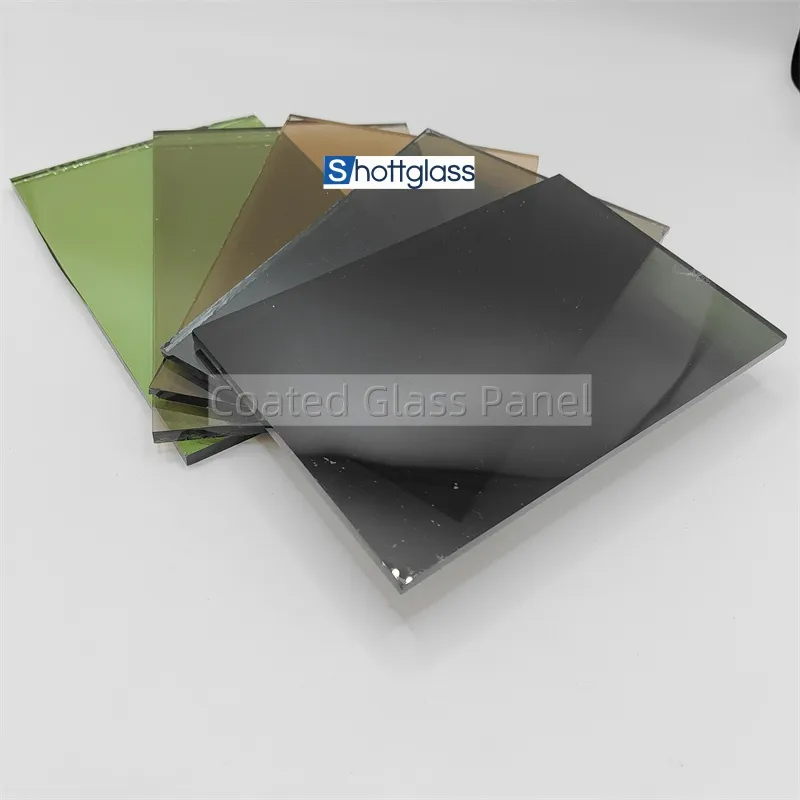Dec . 05, 2024 14:49 Back to list
toughened glass types
Understanding Different Types of Toughened Glass
Toughened glass, also known as tempered glass, is a type of safety glass that has been strengthened by a process of extreme heating and rapid cooling. This process makes the glass several times stronger than standard glass, which not only enhances its durability but also improves its safety in a variety of applications. Understanding the different types of toughened glass can help consumers make informed decisions based on their specific needs.
1. Standard Toughened Glass
Standard toughened glass is the most common type of toughened glass available in the market. It is designed to withstand high impact and shear stress, making it an ideal choice for a wide range of applications, including windows, doors, and shower screens. The manufacturing process involves heating the glass to temperatures of about 600 degrees Celsius and then cooling it rapidly. This creates a balance of internal stresses, which enhances its strength. In case it does break, standard toughened glass shatters into small, blunt pieces, reducing the risk of injury.
2. Laminated Toughened Glass
Laminated toughened glass consists of two or more layers of glass bonded together using a special interlayer, usually made of polyvinyl butyral (PVB). The interlayer not only increases the overall tensile strength of the glass but also adds an extra layer of safety. If the glass breaks, the interlayer holds the shards in place, preventing them from falling. This type of toughened glass is particularly popular in environments where safety is paramount, such as in high-rise buildings, skylights, and glass facades.
toughened glass types

Low-iron toughened glass is characterized by its minimal iron content, which results in a clearer and more transparent product compared to standard glass. This type of toughened glass is often used in applications where aesthetics are crucial, such as retail displays or glass balustrades. The clarity offered by low-iron toughened glass makes it ideal for showcasing products, providing unobstructed views, and maximizing natural light, especially in architectural designs.
4. Heat-Soaked Toughened Glass
Heat-soaked toughened glass undergoes an additional treatment after the standard toughening process. This involves heating the glass to a specific temperature for a designated timeframe to induce any potential imperfections (known as nickel sulfide inclusions) to break. This process is particularly beneficial in applications subject to high wind loads or harsh environmental conditions. Heat-soaked toughened glass provides an extra assurance against spontaneous breakage, making it a preferred choice for building façades and external windows.
5. Patterned Toughened Glass
Patterned toughened glass is produced with a textured surface, allowing for a variety of aesthetic options while maintaining the strength of toughened glass. Common uses include bathroom windows, glass doors, and decorative partitions. The patterns can range from subtle textures to bold designs, offering both privacy and light diffusion. This type of glass blends functionality with visual appeal, making it popular in modern architecture.
Conclusion
Choosing the right type of toughened glass is critical for ensuring that a project meets safety, aesthetic, and functional requirements. With options like standard toughened glass, laminated toughened glass, low-iron toughened glass, heat-soaked toughened glass, and patterned toughened glass, consumers can select the most suitable type based on their specific needs. As technology advances, the versatility and applications of toughened glass continue to expand, ensuring its place as a vital component in both residential and commercial design.
-
Safety and Style with Premium Laminated Glass Solutions
NewsJun.24,2025
-
Reinvents Security with Premium Wired Glass
NewsJun.24,2025
-
Premium Float Glass Line for Modern Architecture
NewsJun.24,2025
-
Low Emissivity Glass for Energy-Efficient Architecture
NewsJun.24,2025
-
High-Performance Insulated Glass Solutions for Modern Architecture
NewsJun.24,2025
-
Elevates Interior Style with Premium Silver Mirror
NewsJun.24,2025
Related PRODUCTS














